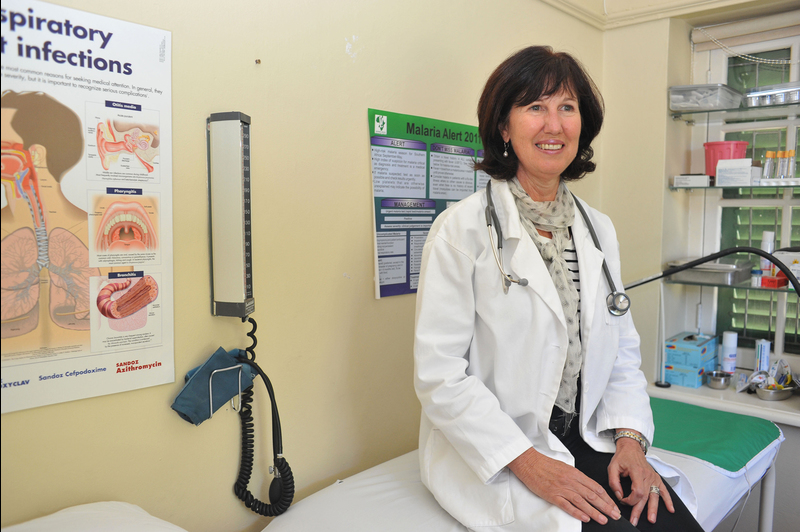A day in the life of Dr Corinne Landon, Principal Medical Officer
29 April 2013
MP: What does your job entail?
As a clinician, my priority is to provide medical and educational interventions to UCT students as well as to manage the team of doctors and clinical nurse practitioners. I sit on committees such as HAPI (HIV & AIDS Policy Implementation Group) and the Readmission Review Committee of the Science Faculty, and advise UCT staff and faculty members on medical issues that may impact on students, such as swine flu, post-exposure prophylaxis, needlestick policy, sexual assault, and psychiatric emergencies, to name just a few. Faculty staff and other UCT staff contact me requesting advice on matters such as medical certificates, deferred exams and the management of ill students.
MP: What are the biggest challenges?
I would say trying to balance the administrative load and my clinical responsibilities. As a health professional I would prefer to spend more time consulting, but an important part of my job is also to provide administrative support and medical advice and guidance to the executives.
MP: The best bits?
One of the highlights is working in a multi-disciplinary team. We have a wonderful, dedicated staff at the Health Service. I am privileged to work with clinical nurse practitioners, medical officers, psychologists and social workers who are experienced professionals. The clinical nurse practitioners are the backbone of the service, providing comprehensive medical care to most of the students, and ensuring the smooth running of the service by ordering and maintenance of the necessary stock. The clinical nurse practitioners refer to the medical officers and psychologists only if after fully assessing the patient, they decide that it is not within their scope of practice to manage the patient.
The practice also couldn't function without our dedicated reception and administrative staff.
Of course, interacting with our students is always the highlight of my day - especially when, even as they face so many challenges, they can be encouraged to focus on achieving their goals. I often get emails from students who have graduated from university, keeping me updated on their achievements and the work they are doing - even their recent marriages and children.
MP: Any stand-out experiences you've had?
I can clearly remember the outbreak of the H1N1 flu epidemic in August 2009. One of the UCT students who had travelled to Johannesburg became infected with H1N1, and the entire university community was on high alert. I was involved in developing medical protocols for the university, and with my dedicated team set up procedures for the health team at Student Wellness (hotline and triage system), to deal with concerned parents, staff and students. As expected, despite stringent hygiene protocols, the health team staff also became infected - including me. The combined effort from the health team, UCT's executives, Communication and Marketing, as well as Human Resources, meant that the anxiety about H1N1 could be contained.
MP: The worst bits?
I don't have any worst bits, but if you had to ask my family they would probably say that I worry too much - I think maybe it's just 'caring'. It is difficult for any health professional to 'turn off' when they leave the office. Students keep me awake at night while I wonder if I might have missed a diagnosis, or if their condition may have deteriorated during the night. I usually contact them first thing in the morning, to put my mind at ease and to ensure that their medical condition has stabilised.
 This work is licensed under a Creative Commons Attribution-NoDerivatives 4.0 International License.
This work is licensed under a Creative Commons Attribution-NoDerivatives 4.0 International License.
Please view the republishing articles page for more information.










